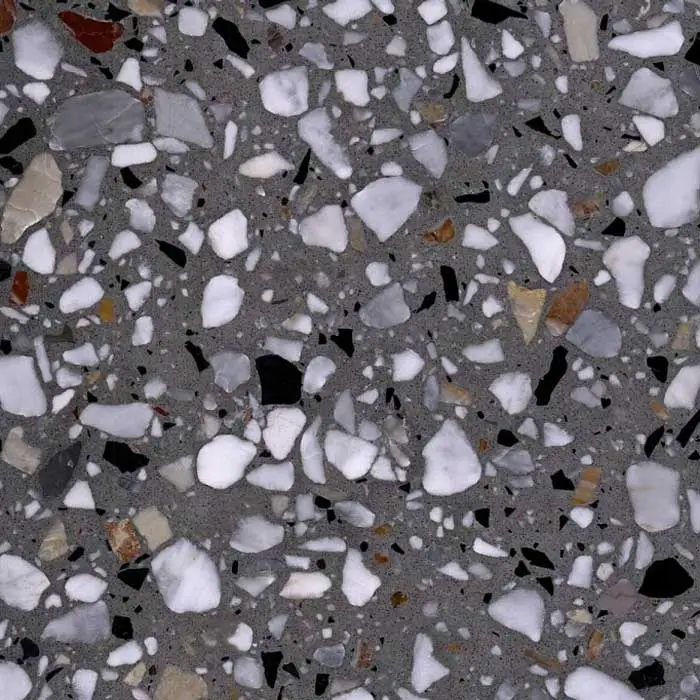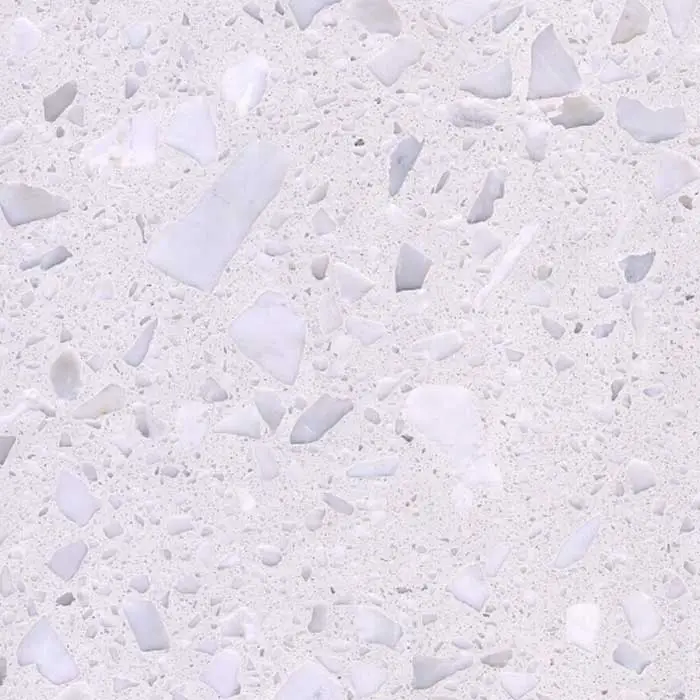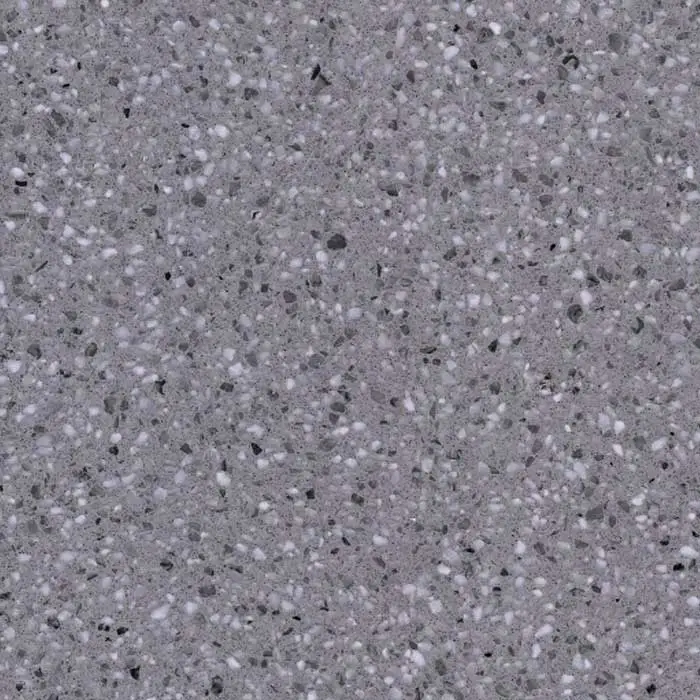Many consumers and designers may not fully understand the thickness of terrazzo countertops, the practical applications and effects of different thicknesses.
This article will explore the thickness of terrazzo countertops and their differences to help readers make more informed choices.

What is the standard thickness of terrazzo countertops?
The thickness of terrazzo countertops usually varies depending on the use environment and design requirements. Common terrazzo countertop thicknesses are 20 mm, 30 mm and 40 mm, of course, there are some special needs that will use thicker or thinner materials.
20 mm thickness:
A 20 mm terrazzo countertop is a thinner option and is often used in situations where lightweight design is required. For example, this thickness is very suitable for suspended countertops or when you need to add a countertop to an existing structure without adding too much weight.
30 mm thickness:
30 mm is the most common terrazzo countertop thickness. This thickness is both beautiful and practical and is widely used in home kitchens, bathrooms and commercial places. The thickness of 30 mm is enough to provide sufficient strength and durability without appearing too heavy.
40 mm thickness:
40 mm terrazzo countertops are relatively thick and are suitable for environments that require high strength and durability, such as high-end kitchens, laboratory workbenches, and heavy-duty commercial countertops. This thickness not only provides stronger structural support, but also increases the luxury of the countertop.

What is the difference between terrazzo of different thicknesses?
The thickness of terrazzo countertops not only affects its appearance, but is also directly related to the performance, installation method, and service life of the countertop. The following discusses the differences in different thicknesses in detail from multiple aspects.
1. Strength and durability
●20 mm: Although 20 mm thick terrazzo countertops have their advantages in lightweight design, their strength is relatively weak and are not suitable for bearing large weights and impacts. Therefore, this thickness is more suitable for occasions with strong decorativeness and low practicality requirements.
●30 mm: The 30 mm countertop thickness provides good strength and balance, can withstand most of the pressure and load in daily use, and is an ideal choice for home and commercial places.
●40mm: 40mm thick countertops have the strongest structural strength and can withstand heavy loads and high-intensity use environments. They are very suitable for places that require extremely high durability, such as high-end kitchens and professional laboratories.
2. Installation and structural support
●20mm: Due to its thin thickness, 20mm countertops need to pay special attention to the stability of the supporting structure when installing, and usually require additional support frames or reinforcement measures.
●30mm: 30mm thick countertops are more convenient to install and usually do not require additional structural support. They can be directly installed on standard countertop brackets.
●40mm: Thicker countertops need to consider the bearing capacity of the floor and supporting structure when installing, especially in the case of suspended installation or larger areas, a stronger support frame may be required.
3. Aesthetics and design effects
●20mm: 20mm countertops can bring a light and modern design sense due to their thin appearance, which is suitable for minimalist interior decoration.
●30mm: 30mm countertops have a good sense of thickness and balance, which can adapt to a variety of design styles, whether modern simplicity or classic retro, can be perfectly integrated with them.
●40mm: The heavy countertop can provide a luxurious and stable visual effect, which is suitable for high-end decoration needs and can significantly improve the grade and texture of the space.
4. Price and cost
●20mm: Due to the small amount of material used, the 20mm thick countertop is relatively low in cost, which is suitable for users with limited budget but want to achieve a certain decorative effect.
●30mm: This thickness of countertop has a good price-performance ratio in terms of price. It can provide a more reasonable cost while ensuring quality, and is the first choice for most users.
●40mm: The increase in thickness means the increase in material cost and processing cost. The price of the 40mm thick countertop is relatively high, which is suitable for users with high budgets and high quality.

Precautions for installation and maintenance
1. Precautions for installation
●Support structure: According to the thickness of the countertop, select a suitable support structure to ensure stable installation.
●Joint treatment: The joint treatment of terrazzo countertops requires the use of professional caulking materials and techniques to ensure that the joints are smooth and beautiful.
●Protective measures: During the installation process, avoid hard objects hitting and heavy pressure to prevent the countertop from being damaged.
Conclusion
For home kitchens and bathrooms, 30mm terrazzo countertops are an ideal choice, combining beauty and practicality. In places that require high strength and durability, such as commercial kitchens and laboratories, 40mm countertops provide the best support and luxury. Although 20mm countertops are slightly lacking in strength, they still have unique advantages in lightweight design and modern style decoration.

